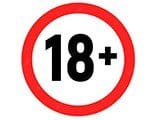Many plan their next summer vacation now. But the budget is always a big concern. In order for you to enjoy more your next vacation, you need to read our following tips:
Save money by sharing with others
Just as you can trade many things and receive them as gifts, sharing can not only save you money, but also help the environment. For example, share your Internet connection with a neighbor. Or share the cost of a long car trip with other passengers.
On many portals like rebuy.com or frents.com, you can borrow things like tools, camping accessories or hiking gear from people in your neighborhood. In our list of best places to borrow and swap, we show you some recommended portals. You can also borrow clothes instead of buying them.
Make things yourself
Whether it’s detergent, deodorant, vegetable broth or toothpaste – making things yourself saves money and protects the environment, because we decide ourselves which ingredients go into it.
Repair instead of buying new
A hole in your sweater or a cracked smartphone screen – most things that break can be easily repaired yourself. And the ones you can’t fix yourself can be taken to repair cafés, for example: Here, volunteers repair broken irons, bicycle tires and wool sweaters – all for free. In this way, you help your things last longer and save money and resources.
Go to bed earlier – also to save money
If you go to bed early, you’ll not only be fitter the next morning, you’ll also save electricity – and money. After all, most electrical appliances are used in the evening. We spend more time watching TV or using the computer in the evening. And the longer we stay awake, the longer the lights stay on – another energy guzzler.
If you can’t or don’t want to sleep that early, you can at least turn off one source of energy: Swap the TV for an exciting book or a blackjack game on your computer for a board game – and you’ll use less electricity. Of course, this also works regardless of the time of day.
By the way, doing without electrical appliances is not only good for your wallet and the environment, but also for you.
Avoid showering mistakes
By taking shorter and sometimes cold showers, you save hot water – and thus energy that heats the water and ultimately money: Five minutes of cold showers cost about 20 cents. Five minutes of hot showers cost about 1.25 euros, i.e. over 6 times as much!
But you can also save money by taking fewer showers: Instead of showering every day, once or twice a week is theoretically enough. If you only take hot showers twice a week instead of every day, you save about 325 euros a year. You can still clean your face, genital area or armpits every day.
In the meantime, a real trend has developed around limited showering: “non-bathing”.
By the way, cold showers not only have advantages for your wallet and the environment, but also for you: showering with cold water stimulates the circulation, strengthens the immune system and tightens the upper layers of the skin.
Stop rewarding yourself with consumption
A new pair of pants, a new cell phone, a delicious ice cream – these are things we buy because they make us happy, at least in the short term. But most of what we consume on a daily basis, or even just now and then, we don’t actually need. Even if advertising tells us otherwise.
If you critically question your consumption, you save money and protect the environment. So stop buying new things all the time and spend your time with friends, family or in nature.
Don’t always buy everything immediately
There are those things that we want to have at all costs – no amount of critical questioning will help. A very simple trick can help: wait.
Wait at least 30 days for larger purchases. Then we usually forget about things we don’t really need. If you still want the object of your desire after this period, buy it. Because then there’s a good chance that you’ll actually use it a lot and that the purchase will be worthwhile.
Note: Don’t play games you don’t understand: If you’re unfamiliar with a game, it’s best to learn the rules before diving in. Playing a game you don’t understand can lead to confusion, frustration, and even financial losses.


